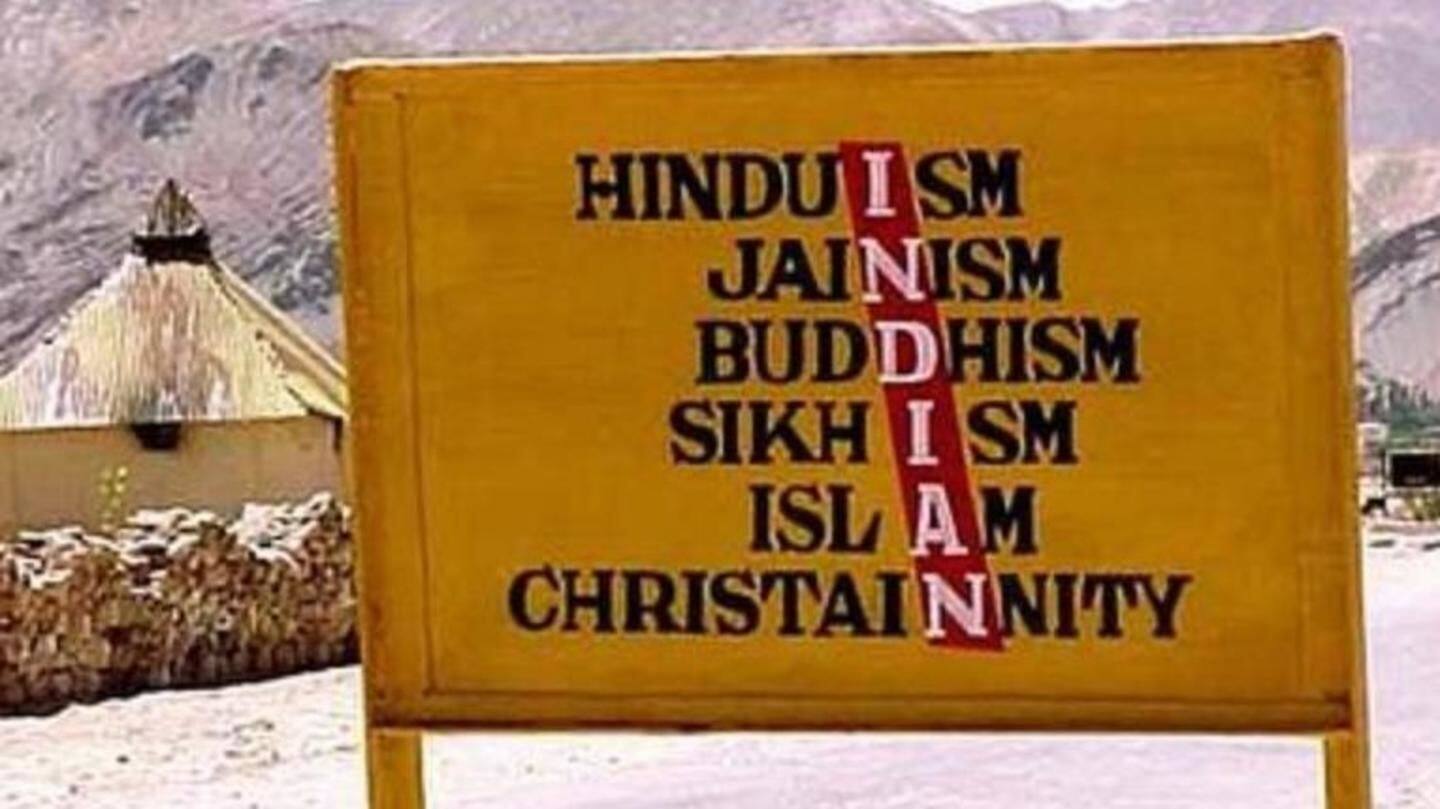
BJP government in Christian-dominated Arunachal mulls repealing anti-conversion law
What's the story
The BJP government in Arunachal Pradesh is reportedly planning to repeal a 40-year-old law that bans forced religious conversions. Justifying the move, CM Pema Khandu said the current law could undermine secularism and is "probably targeted towards Christians." It has left Christian groups elated, and might bring BJP much-needed minority votes in 2019. But tribal groups are concerned over a dip in followers of indigenous faiths.
Act
About the Arunachal Pradesh Freedom of Religion Act, 1978
The Arunachal Pradesh Freedom of Religion Act, 1978, bans religious conversions "by the use of force, inducement or any fraudulent means." Those violating this clause can be jailed for up to two years and fined Rs. 10,000. People who assist authorized conversions have to inform the District Deputy Commissioner of the development. Non-compliance can lead to one-year imprisonment and Rs. 1,000 fine.
Reality
Despite the law, conversions shot up in the state
Contrary to expectations, conversions in the state rose drastically, especially during the 1990s. According to the 1951 Census, there were no Christians in Arunachal, then called 'North East Frontier Province.' But the latest census (2011) shows Christians, at 30.26%, have overtaken Hindus, now at 29.04%, as the largest population in the state. Those of 'other faiths' fell from 51.6% (1981) to 26.2% (2011).
Factors
These factors are believed to have triggered such trends
Among indigenous faiths, the biggest is Donyi-Polo, a mix of indigenous animist belief systems centered around the worship of the sun and the moon. One factor that pushed out Donyi-Polo followers was the expensive rituals it mandates, reports say. On the other side were missionaries like Reverend Brother Prem Bhai, who endured repeated imprisonment and beatings but continued to evangelize in Arunachal for 25 years.
CM
Misuse of Act could lead to large-scale violence: CM
Speaking at an event in Banderdewa marking Prem Bhai's 10th death anniversary, Khandu warned people against the Freedom of Religion Act "Any misuse leading to torture of people could trigger large-scale violence and break Arunachal into pieces," he stated. He also acknowledged missionaries' contribution in Arunachal's development and promised all assistance. A new law would be brought before the next assembly session, he assured.
Christians
Christians, alleging religious discrimination, hailed the move
Hailing the move, the Arunachal Christian Forum denied it was political. "The chief minister is educated and wise. He must have realized the futility of the dark and black law," said Toko Teki, a leader. He alleged there was rampant discrimination. "When the Hindus construct a temple, they don't need any permission. However, when the Christians plan to construct a church, the district authorities create a lot of hurdles."
Indigenous groups
Indigenous groups warn of degradation if the Act is repealed
But tribal groups like the Indigenous Faith and Cultural Society (IFCSAP) and the Nyishi Indigenous Faiths and Cultural Society (NIFCS) termed it appeasement of minorities. If the Freedom of Religion Act was repealed, the state's indigenous culture would be degraded, said IFCSAP General Secretary Bai Taba. He also pointed out that Arunachal enjoys special safeguards under different Acts and legislation. NIFCS issued similar statements.
Information
With new law, BJP might score brownie points from Christians
Repealing the 1978 Act isn't likely to change things practically; despite it being in place, conversions have continued unabated, and even risen, in the state in the last decades. It could bring the saffron party the Christian votes, but only at the cost of the indigenous population.